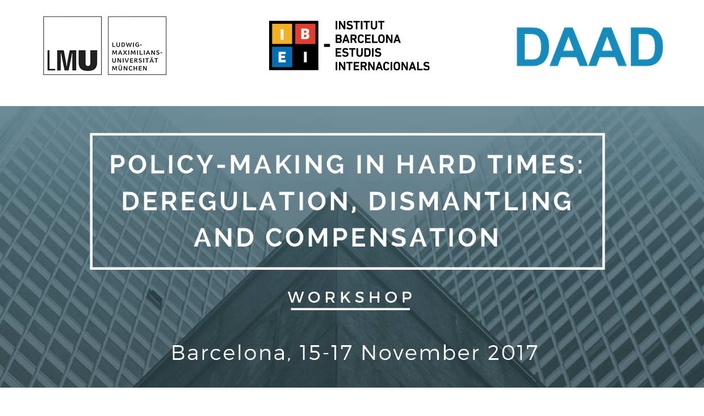Policy-Making in Hard Times: Deregulation, Dismantling and Compensation
Download the Programme (pdf)
The workshop aims to bring together scholars who are interested in policy-making processes in times of economic pressure. Constrained government budgets may impede policy expansion and instead promote policy dismantling and reform blockage. Moreover, economic pressure may stimulate attention shifts to economic and social issues while leaving other public problems largely disregarded. In consequence, economic hardship might provoke new (cross-policy) dynamics in decision-making processes which so far lacks systematic scientific attention. The workshop aims to contribute to this research gap by investigating how and to what extent conflicts between different public policy aims are resolved in times of economic pressure. Hereby, deregulation and the mechanism of policy compensation (expansion in one field and dismantling in another) are of particular relevance. Our main hypothesis is that both mechanisms play a crucial role in resolving trade-offs and conflicts between the different objectives of public governments.
The most recent economic crisis in Europe and its aftershocks (2007-2013) offer a promising setup to examine the different political responses of countries being confronted with strong economic pressures, especially in Southern Europe. The workshop will bring together scholars who investigate the extent to which deregulation and policy compensation (dismantling versus expansion) actually occur and analyze the influence of both international and domestic factors affecting governments’ choice of crisis-coping strategies. This way, we not only learn more about the nexus between economic development and policy-making dynamics, but also about the circumstances under which deregulation and compensation (expansion versus dismantling) take place (e.g., leftwing governments, strength of organized interests, degree of devolution, etc.). In light of the above considerations, the central focus of the workshop is on policy compensation and deregulation as the “neglected” side of policy change and its societal and political consequences.

